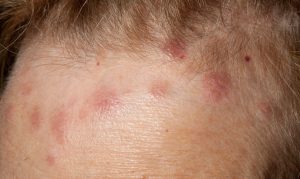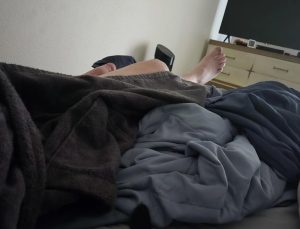HT6. Why You Might Feel the Urge to Poop Right After Eating: Causes and Solutions
Have you ever found yourself rushing to the bathroom immediately after a meal? This common phenomenon is often linked to the gastrocolic reflex, a natural bodily response that triggers bowel movements following food intake. While normal for some, frequent or intense episodes may indicate underlying digestive conditions. This article will delve into why this happens, potential health implications, and effective management strategies.
What Is the Gastrocolic Reflex?
The gastrocolic reflex is an involuntary reaction where the stomach signals the colon to contract upon receiving food. This reflex helps move food through the digestive system efficiently. For most people, the response is mild and unnoticeable. However, others may experience a strong urge to have a bowel movement right after eating.

Key Factors Influencing the Gastrocolic Reflex:
- Meal Size: Larger meals tend to stimulate a stronger gastrocolic reflex.
- Food Types: Certain foods, such as high-fat or high-fiber items, can intensify this reflex.
- Age: Younger individuals often have a more pronounced gastrocolic reflex.
- Underlying Health Conditions: Conditions like Irritable Bowel Syndrome (IBS) or inflammatory bowel disease (IBD) may heighten the reflex.
Common Triggers for Post-Meal Bathroom Visits
- Dietary Choices
Foods rich in fat, dairy, or caffeine are known to stimulate the digestive system. Spicy foods or artificial sweeteners may also contribute. - Stress and Anxiety
Emotional stress can disrupt digestion, leading to an overactive gastrocolic reflex. This is often observed in individuals with high-stress lifestyles. - Medical Conditions
- Irritable Bowel Syndrome (IBS): Characterized by abdominal pain, bloating, and irregular bowel movements, IBS can make the gastrocolic reflex more sensitive.
- Celiac Disease: An autoimmune response to gluten may cause diarrhea or bowel urgency after eating.
- Food Intolerances: Lactose or fructose intolerance can lead to digestive discomfort and sudden bowel movements.
- Eating Habits
Eating large, heavy meals or eating too quickly may overstimulate the digestive system, leading to urgency.
Signs It’s More Than Just the Reflex
While occasional urgency is normal, certain signs may indicate an underlying health concern:
- Persistent diarrhea or constipation
- Abdominal pain or cramping
- Blood in the stool
- Unexplained weight loss
- Sudden changes in bowel habits
If you experience these symptoms, consult a healthcare professional to rule out serious conditions like colitis, Crohn’s disease, or gastrointestinal infections.
How to Manage the Urge to Poop After Eating
If the gastrocolic reflex is causing discomfort or disrupting your routine, several strategies can help reduce its impact:
1. Adjust Your Diet
- Avoid Trigger Foods: Limit fatty, greasy, or spicy foods that may stimulate the reflex.
- Incorporate Gentle Foods: Opt for easily digestible options like bananas, rice, applesauce, and toast (commonly referred to as the BRAT diet).
- Stay Hydrated: Proper hydration supports digestion and reduces irritation.
2. Eat Smaller, Frequent Meals
Large meals can overload the digestive system. Eating smaller portions more frequently helps reduce the intensity of the gastrocolic reflex.
3. Manage Stress
Chronic stress exacerbates digestive issues. Techniques such as meditation, deep breathing, or yoga can help regulate the nervous system and calm the reflex.
4. Establish Regular Meal Times
Consistency in eating schedules allows your body to develop predictable digestive patterns, reducing unexpected bathroom trips.
5. Consider Medical Intervention
For severe cases, medications like antispasmodics or anti-diarrheal agents may be prescribed by a doctor to control symptoms.
Foods That May Trigger Digestive Discomfort
Understanding which foods are more likely to activate the gastrocolic reflex can help you make better dietary choices. Common culprits include:
- Dairy Products: Especially if you’re lactose intolerant.
- Fried or Fatty Foods: Difficult to digest and stimulate bowel movements.
- High-Fiber Foods: While healthy, excessive fiber can overstimulate the digestive system.
- Caffeinated Beverages: Coffee and tea can act as natural stimulants for the bowels.
- Spicy Foods: Can irritate the stomach lining and quicken digestion.
When to See a Doctor
While an active gastrocolic reflex is often harmless, persistent or severe symptoms should not be ignored. Seek medical advice if you experience:
- Sudden, unexplained changes in bowel habits.
- Blood or mucus in your stool.
- Persistent pain or discomfort after eating.
- Symptoms that disrupt daily life or worsen over time.
A healthcare provider may recommend tests such as stool analysis, colonoscopy, or food intolerance testing to identify the root cause.
Living with a Sensitive Digestive System
Living with an overactive gastrocolic reflex or conditions like IBS doesn’t mean you have to suffer. Simple lifestyle changes, mindful eating, and stress management can go a long way in alleviating symptoms. Understanding your body and its triggers will empower you to take control of your digestive health.
Final Thoughts
Feeling the need to use the bathroom right after eating can be inconvenient, but it’s often linked to the body’s natural digestive processes. By identifying triggers, adjusting your habits, and seeking medical advice when necessary, you can effectively manage this issue and improve your quality of life.
Whether it’s through dietary changes, stress management, or medical intervention, taking steps to support your digestive health will help you feel more comfortable and confident. If the problem persists or is accompanied by other symptoms, don’t hesitate to consult a healthcare professional for personalized guidance.
By understanding your body’s signals and taking proactive measures, you can manage the post-meal bathroom rush and enjoy your meals without worry. Always remember, your digestive health is an essential part of your overall well-being.















